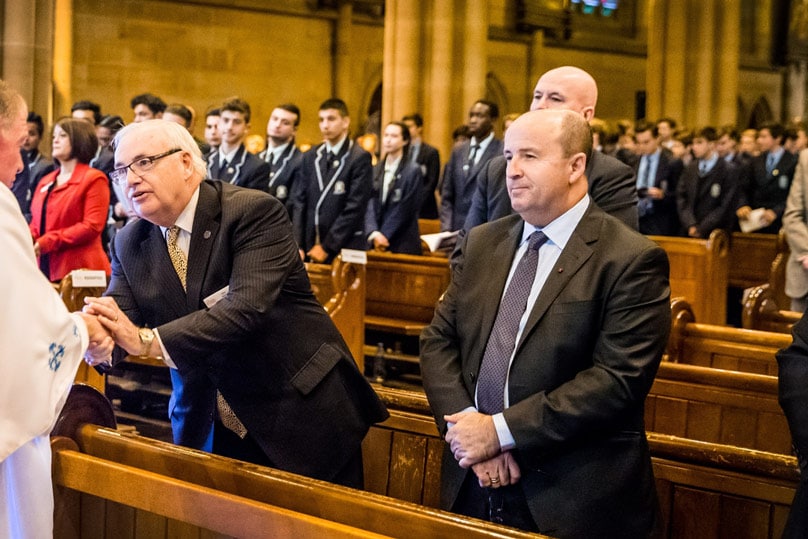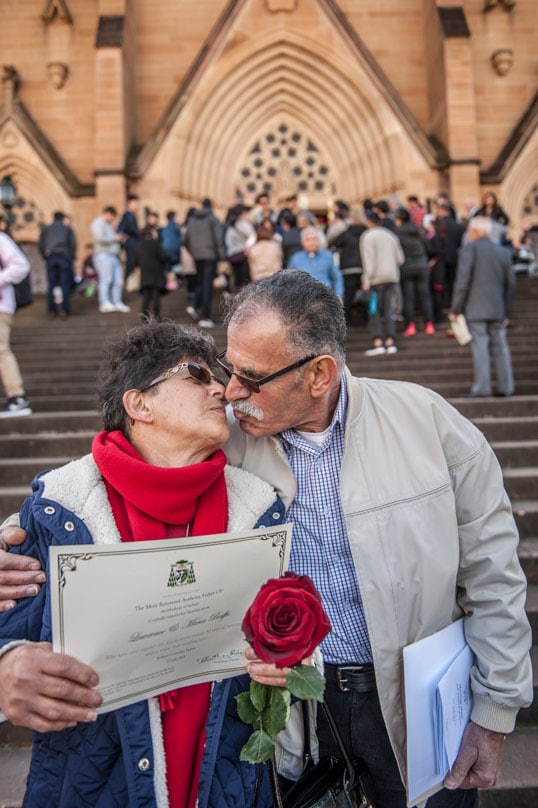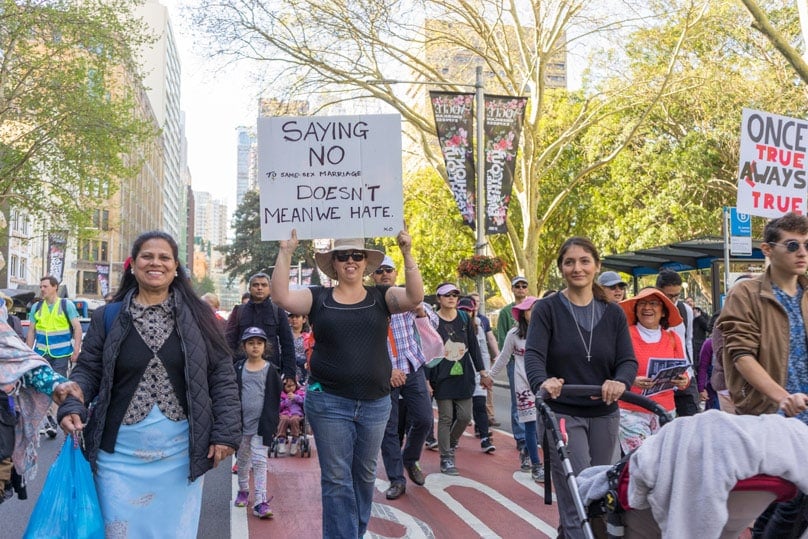
A debate that has consumed, and seemingly exhausted, social and political discussions in recent times, is that of “same-sex marriage”. Like many debates, one of its first victims was truth.
From the outset, those opposed to same-sex marriage have been vilified, and stereotyped as bigots and homophobes. They have been characterised as oppressors, lacking in compassion, concerned only with denying others their rights. This typecasting has been used to mock and stymie public discussion, and suggests that the ‘advocates of change’ hold a position of moral ascendancy. Above all, the typecasting is a great lie.
The support of traditional marriage and the care and concern for gay people are not mutually exclusive. Like many other Australians, I know people who are attracted to others of the same sex. Some are acquaintances, others are good friends whom I respect and care for deeply. My position on marriage does not mean that I value them any less, and they know this. The demonisation of those opposed to same-sex marriage is not just a perversion of truth, it is an affront to the core principles and rights that underpin Australian society as a Western liberal democracy – especially our freedom of speech.
Voltaire’s well-worn adage, “although I may disagree with what you say, I will defend until the death your right to say it” has not characterised the current debate. Rather, those who support the traditional understanding of marriage have been subject to various forms of bullying and intimidation. There has been little tolerance for their divergent views. The efforts to marginalise and silence those who oppose changing the definition of marriage do not bode well for the future.

In recent weeks, politicians of various persuasions have endeavoured to allay people’s fears and assure them that religious freedoms would not be adversely affected by possible changes to the Marriage Act. For some, this may have been political opportunism, and for others – political naivety.
Given the assault to date on freedom of speech, and the pre-existing determination of some to restrict religious freedoms, one could rightfully assume that both religious institutions and believers will feel the impact of “multiple after-effects”, should the definition of marriage be changed. This has already been the case in a number of countries that have legalised same –sex marriage.
While the “yes” campaign frequently cites the legalistaion of same-sex marriage in other nations to support its cause in Australia, it has been conspicuously silent on the after-effects that have eroded freedoms of speech and religion.
In light of these experiences it is evident that the after-effects will also impact upon our approach to education, and this will not be restricted to faith-based schools. The purveyors of change seek to censor society as a whole, and the various institutions within it. Schools in particular are most at risk.
In the coming days, households throughout Australia will receive ballots for the postal plebiscite on marriage. This plebiscite is of great significance. As Australians, our understanding of marriage has been informed by the Judeo-Christian Tradition. We hold a vision for marriage different to that held in many other parts of the world, and we should earnestly safeguard the beauty of this. For us, marriage means “the union of a man and a woman to the exclusion of all others, voluntarily entered into for life.”

In our current debate, the advocates of change have focused exclusively on the gender of those who seek to marry, and have presented it as an issue of human rights.
Fundamentally, this is not about human rights. This is about recognising that not all relationships are the same, and not all relationships, no matter how loving, equate to marriage. Given the relentless rhetoric, Australians could be forgiven for believing that as a society we are out of “sync” with the rest of the world. This in itself is another falsehood of the debate, as fewer than 30 nations have legalised same-sex marriage.
The push for same-sex marriage has been largely driven by the relentless and aggressive pursuit of “gender ideology”, and it is characteristic of the “culture wars” that have become commonplace across Western societies like Australia. Unsurprisingly, same-sex marriage is an almost exclusively Western phenomenon.
In recent months, I have often asked myself, “Is marriage, as we know it, on a precipice – at the edge of a slippery slope?” The robust efforts to change our understanding and practice of this sacred institution certainly put it at risk.
Many have sought to downplay the consequences of changing our definition of marriage, and in so doing, have ignored the “bracket creep” that typically accompanies social change.
My “no” vote in the upcoming postal plebiscite, is not merely a rejection of same-sex marriage, it is an affirmation of the fullness of the Marriage Act. I would also vote “no” to polygamous marriages, or to marriages that were forced upon people against their will, and sadly, these are a reality in many other parts of the world.
Informed by the Judeo-Christian Tradition, our nation recognises that marriages are procreative, permanent and exclusive. However, if change comes to pass, then what next?
